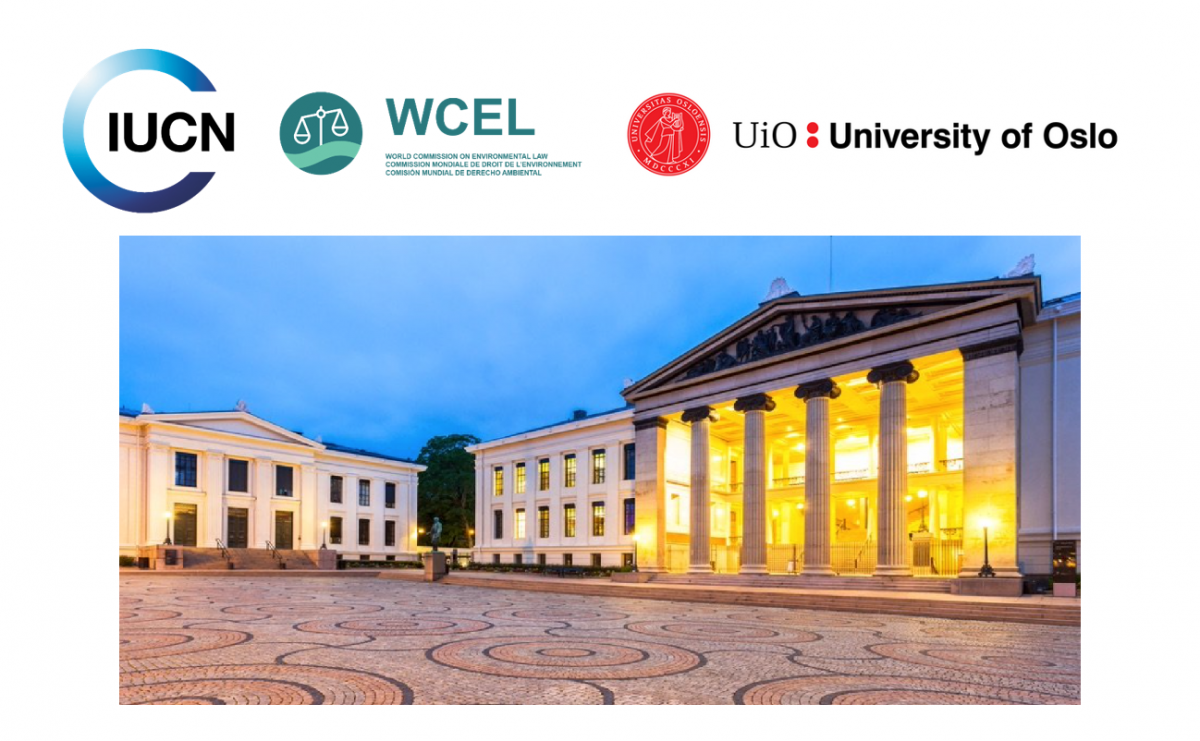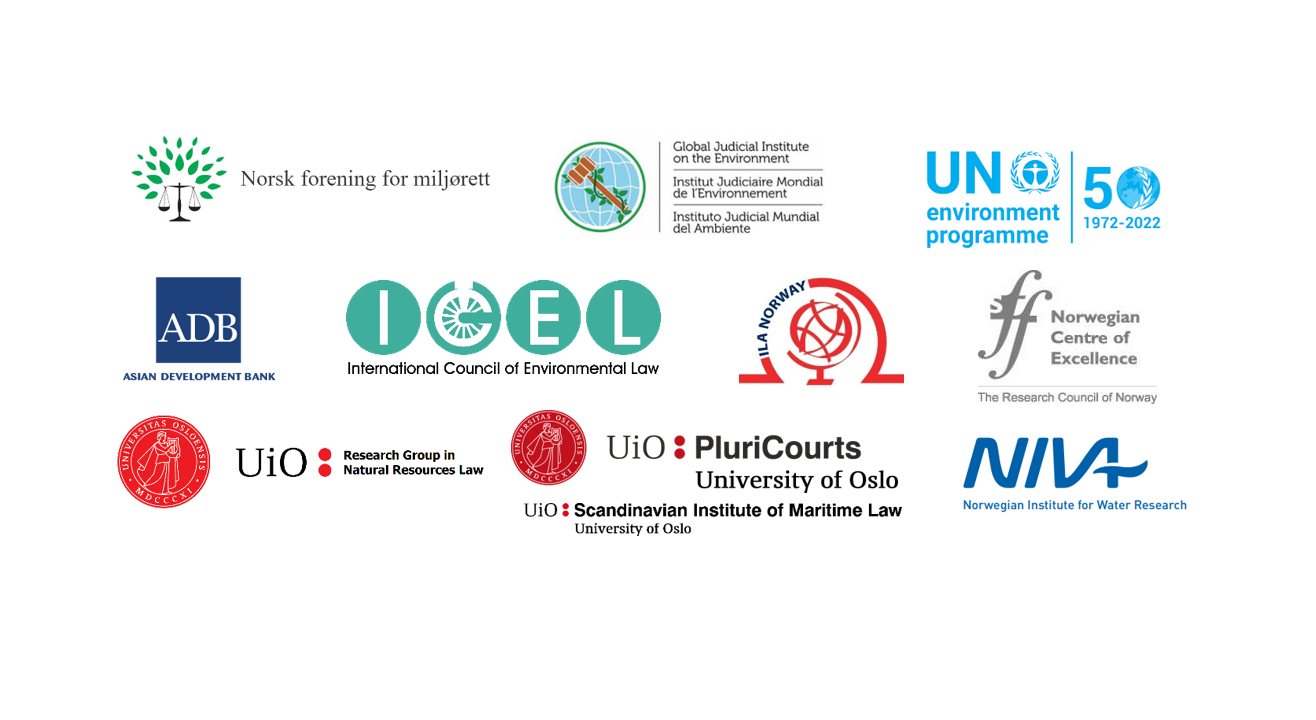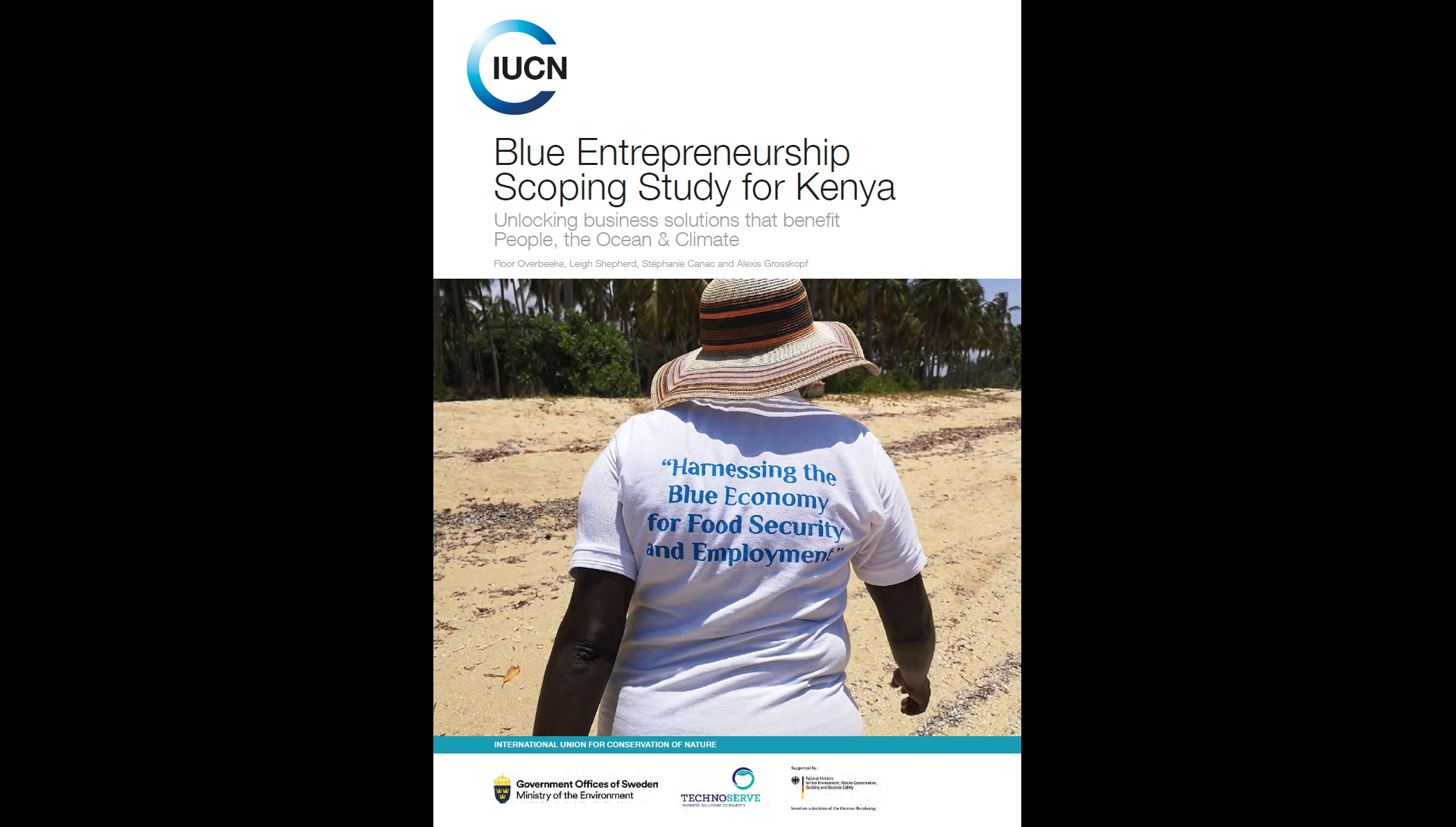Call for Abstracts: 2022 Oslo International Environmental Law Conference
The conference will focus on “The Transformative Power of Law: Addressing Global Environmental Challenges” and abstracts for presentations should be submitted by 30 April 2022.

Photo: WCEL UiO
The IUCN World Commission on Environmental Law together with the Faculty of Law, University of Oslo, will host the Oslo Environmental Law Conference on October 3-6, 2022, at the Faculty of Law, University of Oslo, Norway.
We are inviting abstract submissions for presentations at the Conference by 30 April 2022.
The year 2022 marks several important anniversaries in environmental law making: 50 years of Stockholm Declaration on the Human Environment and the establishment of UNEP in 1972, 40 years of the United Nations Convention on the Law of the Sea, and 30th anniversaries of the Rio Declaration on Environment and Development and the Rio Conventions: UNFCCC, UNCBD and UNCCD.
These anniversaries provide an opportune moment for reflection on the power of law in bringing about the transformative changes needed to address environmental crises of climate change, nature destruction and pollution.
This Conference will inquire about the ability of law, both on the international, regional as well as national level, to facilitate the necessary systemic changes across all sectors and levels. It invites critical presentations on the adequacy, effectiveness, legitimacy and fairness of current legislation or litigation considering the challenges posed by climate change, nature decline and pollution. A core question to be addressed is: “Can the challenges be solved by using the legal tools available?” It will inquire into the possibilities and emerging legal tools, but also limits and shortcomings, of legal responses to those challenges. The conference seeks to bring together innovative academic legal thinking and practice on how legal tools can be improved, advanced, amended or changed. What is needed of the law to act as a catalyst for transformative change? The focus of the conference is a diligent analysis of environmental law. However, also other areas of law, such as human rights law, trade and investment law, commercial law, criminal law, civil law, outer space and others play an important role in transforming society to address critical environmental challenges.
The 2022 IUCN WCEL Oslo International Environmental Law Conference invites academics and researchers at all stages of their career, policy makers, legal practitioners, members of the judiciary other relevant stakeholders to reflect on the importance of law for the critical decade.
Abstracts are invited to focus on the Conference theme of transformation and strengthening the law and to address one of the following subject clusters (the topics are indicating particular interest areas, but are not exhaustive):
- The transformative power of the Environmental Rule of Law
- How to strengthen Multilateral Environmental Agreements?: Effectiveness, Impacts and Structural Challenges
- Transforming Ocean Governance: UNCLOS as Living Instrument
- Towards better cross-compliance - integrating the fight against climate change, pollution and biodiversity loss?
- A new treaty to address plastic pollution: Lessons and expectations
- Transforming the economy: Trade, investment and financial regulation, and governance of associated institutions
- Deploying new and emerging technologies to safeguard Earth’s natural systems
- Can a right to a safe and healthy environment trigger systemic change?
- Ethics and the law: the power to bring about change
- Transformative emerging tools: Intergenerational rights, rights for nature, ecocide
- Ways to strengthen the protection of the environment during armed conflict
- The role of the judiciary in bringing about transformative change
- Overcoming challenges in implementation, compliance and enforcement
- How might best practices in national environmental law be implemented world-wide?
Instructions for the Submission of Abstracts
- Abstracts must be written in English, complete with title, author(s) name(s), and institutional affiliation.
- Abstracts should contain the aim of the presentation, main points and a brief conclusion (300 words, maximum).
- Please include 3-5 keywords, separated by commas.
- Abstracts should not contain tables, graphs, drawings, etc.
- Please complete and attach the Form (see in this webpage under "Downloads") to submit your abstract.
Timeline
- Abstract should be submitted by 30 April 2022 online to WCEL@iucn.org.
- Abstracts will be reviewed on a rolling basis, as received, with a final decision to be provided by 15 June 2022.
- Limited financial support for presenters to participate at the conference is available.
WCEL will publish an edited and peer-reviewed collection of selected papers following the conference. Presenters will be invited individually to contribute to the publication.
 Photo: WCEL
Photo: WCEL




